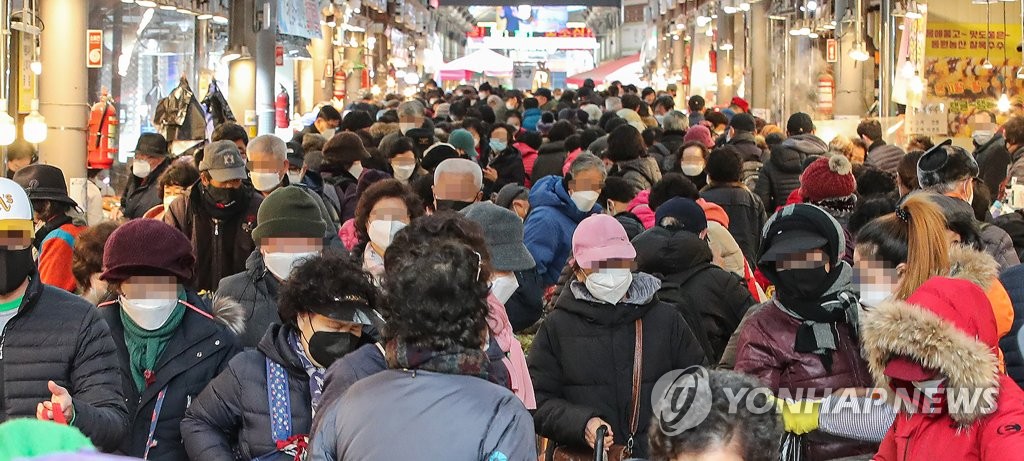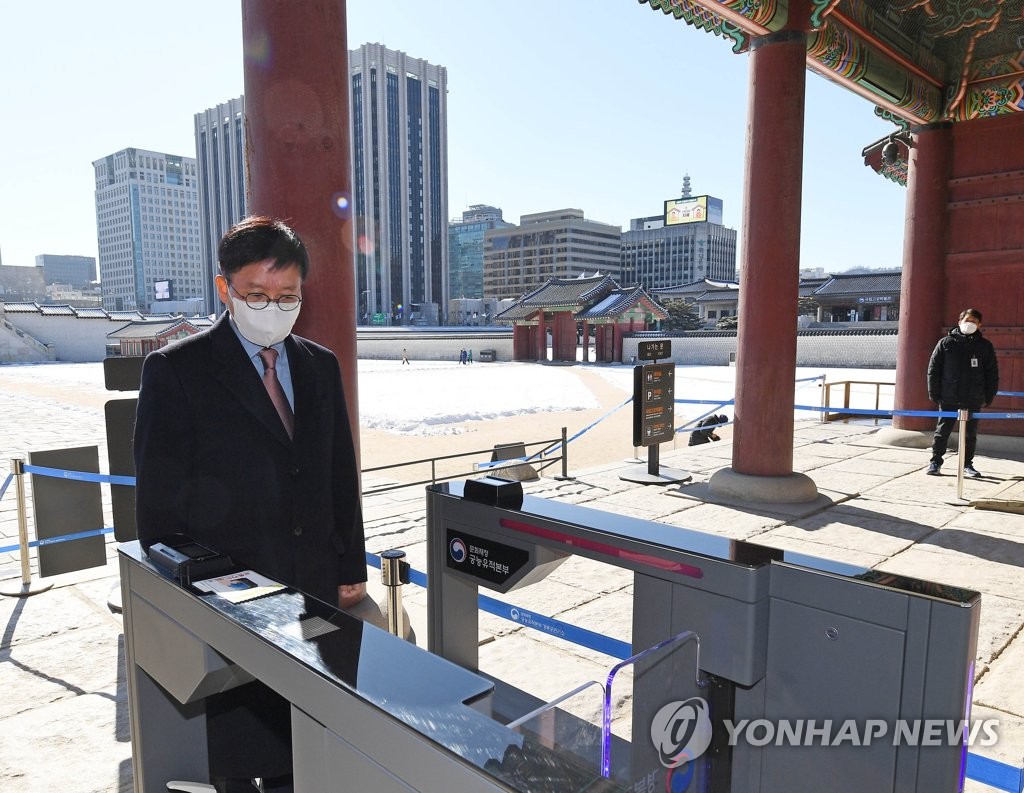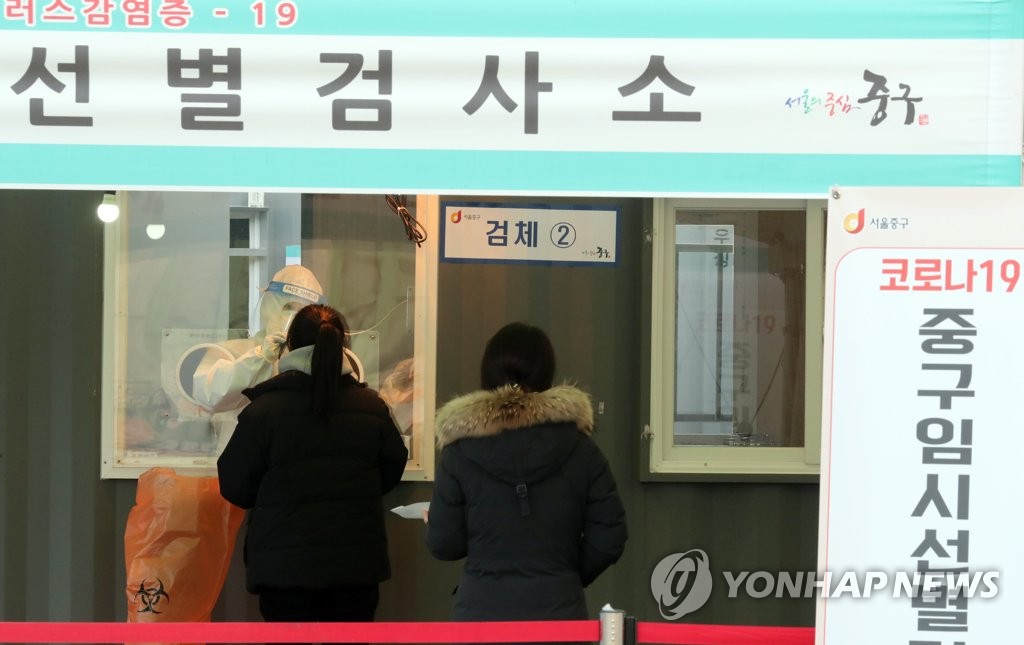- California Assembly OKs highest minimum wage in nation
- S. Korea unveils first graphic cigarette warnings
- US joins with South Korea, Japan in bid to deter North Korea
- LPGA golfer Chun In-gee finally back in action
- S. Korea won’t be top seed in final World Cup qualification round
- US men’s soccer misses 2nd straight Olympics
- US back on track in qualifying with 4-0 win over Guatemala
- High-intensity workout injuries spawn cottage industry
- CDC expands range of Zika mosquitoes into parts of Northeast
- Who knew? ‘The Walking Dead’ is helping families connect
(4th LD) S. Korea’s COVID-19 cases exceed 80,000 amid tough virus curbs
South Korea surpassed a grim milestone in its battle against the coronavirus pandemic as its total COVID-19 caseload broke the 80,000 mark Friday.
The country added 370 more COVID-19 cases, including 351 local infections, raising the total caseload to 80,131, according to the Korea Disease Control and Prevention Agency (KDCA).
Daily infections fell from 467 on Wednesday and 451 on Tuesday after staying under 400 the three previous days.
The KDCA said it will decide on whether to adjust the current social distancing rules on Saturday ahead of the Lunar New Year holiday that falls later next week.
As of 9 p.m. Friday, the country added 350 more cases, up 11 from the same time Thursday, according to health authorities and local governments. New cases are counted until midnight each day and announced the next morning.



People pack a traditional market in eastern Seoul ahead of the Lunar New Year holiday on Feb. 5, 2021. (Yonhap)
New virus infections had been slowing down since the third wave of the pandemic peaked at a record high of 1,241 daily cases on Dec. 25.
But the number recently spiked due mainly to cluster infections from unauthorized education facilities run by a local Christian missionary group, called the International Mission (IM).
Group infections have been reported from private gatherings and various facilities as well.
Amid a flare-up in virus cases, the KDCA on Sunday extended Level 2.5 social distancing rules, the second highest in a five-tier scheme, in the greater Seoul area and Level 2 measures in other regions until Feb. 14.
Cases tied to IM education facilities stood at 394, up five from the previous day. Infections traced to a general hospital in southeastern Seoul rose by four to 73, and cases involving a welfare facility in central Seoul climbed by two to 78. The number of virus patients linked to a church in Seocheon, 235 kilometers southwest of Seoul, rose by two to 44.
Under the extended rules, gatherings of five or more people are also banned across almost the entire country.
Authorities remain cautious about easing social distancing rules before the Lunar New Year holiday, saying relaxing the curbs runs the risk of an uptick as cluster infections have continued to pop up at religious facilities, hospitals and other risk-prone establishments.
Of the 351 new local infections announced early Friday, 122 cases were reported in Seoul and 110 cases in Gyeonggi Province that surrounds the capital. Incheon, 40 kilometers west of Seoul, reported 25 more cases.
The southern port city of Busan reported 33 more virus cases, Daegu and the South Chungcheong Province added 14 and 11 more cases, respectively.
The country added 19 imported cases, increasing the total to 6,444. Eight cases came from Asian countries, except for China, followed by five cases from the United States, three from Europe and three from Africa.
The country added 11 more deaths, raising the total to 1,459. The fatality rate was 1.82 percent.
The number of seriously or critically ill COVID-19 patients reached 200, down from 211 a day earlier.
The total number of people released from quarantine after making full recoveries stood at 70,117, up 413 from the previous day.
The country has carried out 5,847,178 coronavirus tests since Jan. 3, 2020. The country reported its first case on Jan. 20 last year.
The KDCA said Thursday it acknowledges the possibility of a fourth wave of the coronavirus pandemic in March in the face of an increase in the number of virus variant cases.
The number of the coronavirus variant cases reported in South Korea reached 39 as of Thursday.
South Korea has extended the ban on passenger flights arriving from Britain, which has been in place since Dec. 23, until Thursday to block the new virus variant.
All arrivals from foreign countries are required to present papers showing negative polymerase chain reaction (PCR) tests taken within 72 hours of their departure to South Korea.
With the country’s vaccination program set to begin this month, the KDCA said there should be further discussions on whether to administer AstraZeneca vaccines to people aged 65 or older.
That’s because there is not enough data on the AstraZeneca vaccine’s efficacy for the age group, a local panel of experts said.











